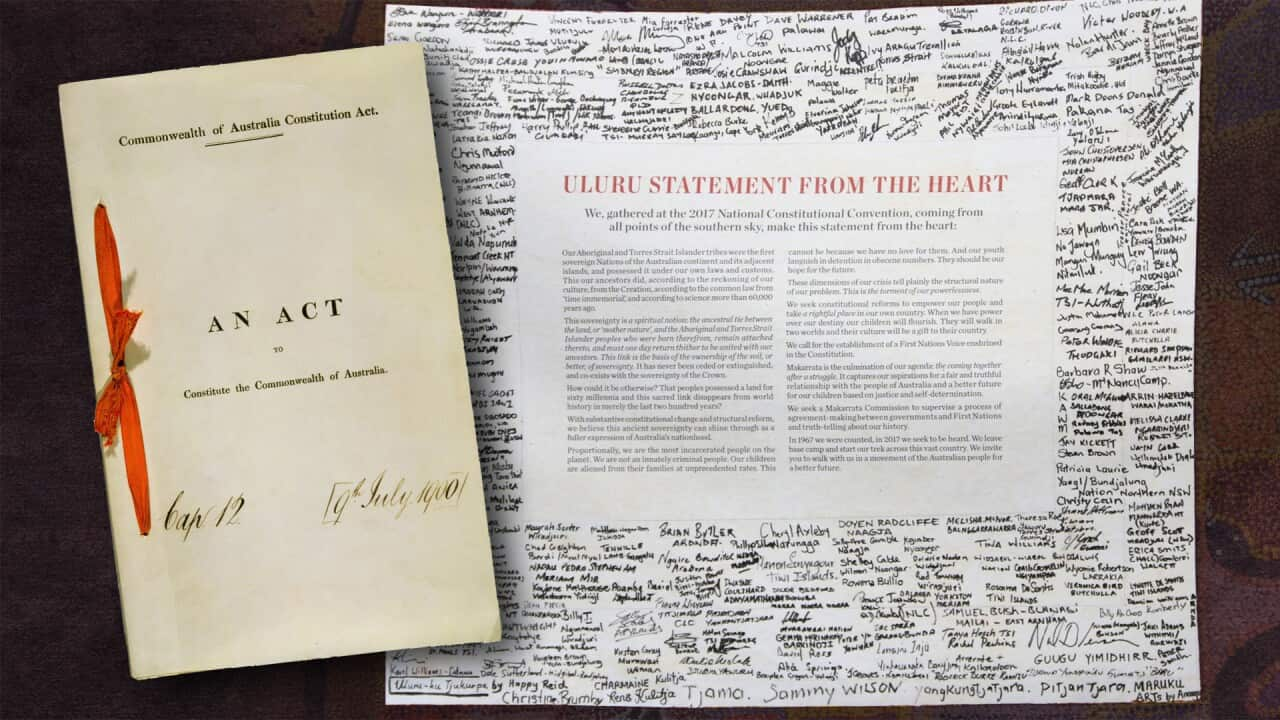In January 1988, Australian society was gearing up to celebrate the First Fleet's arrival on the continent two centuries before.
First Nations communities, disgusted at the whitewashing of the atrocities that colonisation sparked, responded with some of the most significant political demonstrations the continent had ever seen.
As marches took place around the country, Burnum Burnum (meaning Great Warrior, after his grandfather) made his own small, but significant protest.
Making the reverse journey that Cpt Arthur Phillip had made in the 18th century, the Wurundjeri man travelled to England for the bicentenary.
'We wish no harm to you natives'

Burnum Burnum used the bicentenary of white invasion to point out the historical and continuing abuses of First Nations people. He claimed England and promised not to exact the same horrors on its people as his own had suffered. Source: Press Association / PA Agency
"In claiming this colonial outpost, we wish no harm to you natives," he wrote in an accompanying declaration.
"[We] assure you that we are here to bring you good manners, refinement, and an oppotunity to make a Kompartoo - 'a fresh start'."
Burnam declared that an Aboriginal face would appear on all English coins and stamps, and promised that the 'more advanced' would learn the 'complex Pitjantjajara language' and develop a spiritual relationship with the Earth.
Burnum's declaration was of course a sarcastic take on the arrogant pronouncements of the English upon their arrival on Aboriginal lands, promising to bring 'civilisation' but delivering instead barbarity.

The Burnum Burnum Declaration, which claimed sovereignty over England on behalf of Aboriginal people.
A staunch activist
As for all Aboriginal and Torres Strait Islander people, Burnum Burnum's protest against colonisation was intensely personal.
A member of the Stolen Generations, he was removed from his family as a child, and eventually placed at
Having suffered the same abuses there that many boys would, Burnum became a passionate advocate of Aboriginal rights in many fields.
An activist, actor, writer, sportsman and more, he worked in Aboriginal accommodation, served on parliamentary committees and was a vocal opponent of land destruction.
While studying law in Tasmania he was involved in the successful campaign to remove Truganini's bones from public display, something he referenced in his declaration claiming England.
"We do not intend... to publicly display the skeletal remains of your Royal Highness, as was done to our Queen Truganini for 80 years."
His protest at Dover was the most spectacular of his long career of activism: it garnered headlines internationally, where his sarcastic assurances of civility were recognised for their reference to racism in Australia.
A sufferer of diabetes, Burnum died in 1997 of coronary heart disease.
Jannali Reserve in Sydney's south, where he spent his later years, was renamed Burnum Burnum Reserve in 2005.












